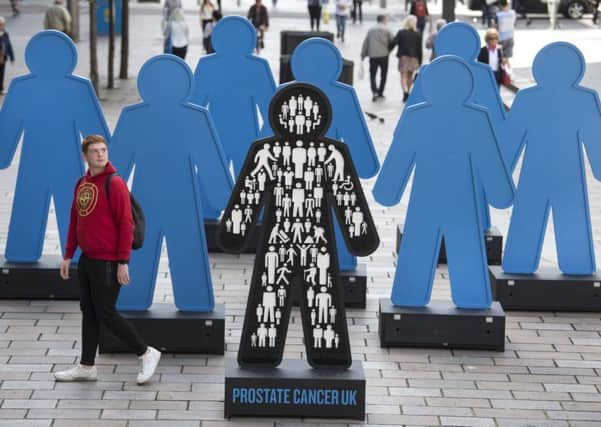Cancer diagnosis for two pals means I need to tell you something – Steve Cardownie


This has been prompted by a recent blood test I had to determine my prostate specific antigen levels (PSA), the results of which I was given yesterday. PSA is a substance produced by the prostate gland and an elevated level may indicate cancer, a non-cancerous condition such as prostatitis, or an enlarged prostate. Men with prostate cancer often have levels higher than four, although cancer is a possibility at any PSA level.
The PSA test is not perfect and most men with elevated levels will have prostate enlargement which is a normal part of the ageing process and is no cause for concern but I formed the view that I would rather go through a short period of anxiety and get the all-clear than being blissfully unaware that I had a problem until it became more serious.
Advertisement
Hide AdAdvertisement
Hide AdI had no symptoms, had never been offered a prostate check by any GP and only found out last year, at the age of 65, that I had an issue that had to be addressed and this was only as a result of a casual conversation during a routine blood test I had with a nurse during which I asked for my PSA level to be determined.
My level was 9.4 and after a biopsy at the Western General Hospital identified a cancerous tumour I was informed of several potential treatments that were suitable for me. After weighing everything up I plumped for Brachytherapy, which entailed the placing of 90 radioactive seeds which emit radiation for approximately six months in the prostate gland and, so the theory goes, kill off the cancerous cells in the tumour. A simple procedure, I was in the operating theatre at 11.30am and the pub by 5.30pm.
Since undergoing treatment, however, two friends of mine have told me that they now have prostate cancer. Both had elevated PSA levels and cancer was confirmed in both cases after a biopsy.
I spoke to both of them last weekend, as one of them only got his results a few days ago. He is now considering which is the best way forward for him and as the matter was identified when the cancer was at early stage he is in the fortunate position that he has a choice. My other friend, however, has not been so lucky and his only option is to have his prostate surgically removed although, pleasingly, both are entirely confident that they will successfully recover.
The news of my friends’ diagnosis has prompted me to return to this subject and I am unapologetic for doing so. All men aged 40 years and over are entitled to a blood test to establish PSA levels. If, after discussing it with a GP, they want a test the GP is obliged to carry one out.
The blood is usually extracted from the arm and is then sent off for analysis which takes a few days and, depending on the results, a biopsy may be offered. This is another painless process which can identify if cancer is present or not and, if so, the treatment is usually remarkably successful, with an 84 per cent survival rate. Prostate cancer is the most common cancer in males in the UK, accounting for 26 per cent of all new cancer cases in males in the UK (2015) and early diagnosis and treatment can make all the difference.
On the date of my operation last September my PSA level was 13.2 – yesterday it was 1.4, so it looks like a cause for celebration. But another cause for celebration would be an increase in the number of men who have had their prostate checked.
I have used this page to try and spread the message, whether successfully or not I cannot gauge, although hopefully somebody may have found it useful. But for me the matter is now closed and this particular soapbox has been retired.
